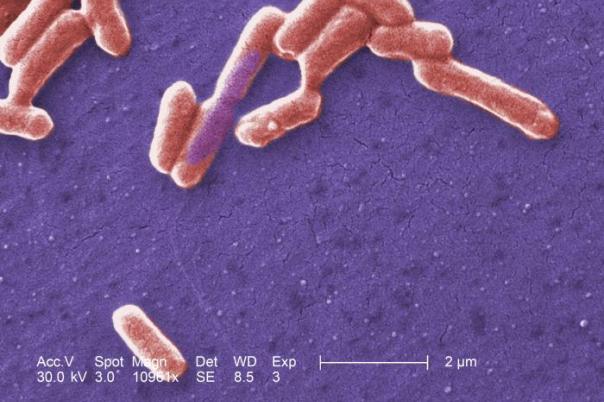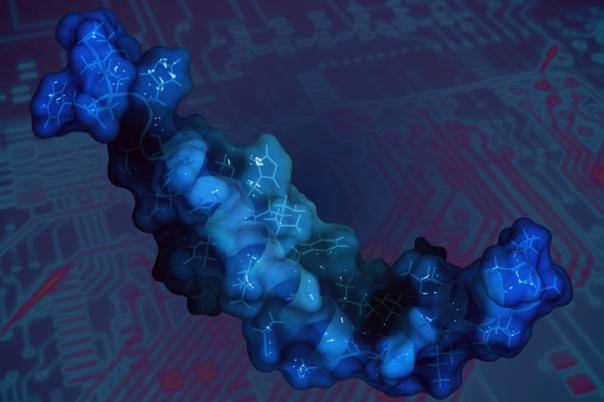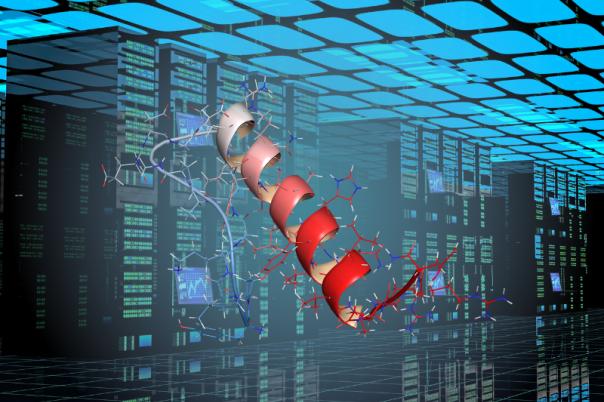Peptides are particularly unique molecules, bridging the divide between chemistry and biology and allowing for both biological synthesis and chemical modifications. In Leonardo De Maria’s view, this special interface has not been fully exploited. The pioneering chemist has the opportunity to pursue the vast chemical space available for optimising peptides, due to the potential for hundreds of thousands of non-natural amino acids. Theoretically, this chemical space spans 1060 unique compounds to go after.
De Maria begins this presentation by stressing the importance of external and internal collaboration within AstraZeneca. This project was made possible because of the fantastic work of his AstraZeneca colleagues as well as academic partners. De Maria was keen to mention in particular, Kosala Amarasinghe, a master's student from Gothenburg University, and Professor Michele Vendruscolo from Cambridge.
In projects where the structural information is available, it can be leveraged to optimise peptides. This is because that information can enable the selection of amino acids that fit specific pharmacophores. To exploit this, De Maria’s team created a virtual library of 400,000 alpha amino acids and screened them in silico to identify candidates for peptide optimisation.
De Maria outlined the various scoring methods which were used to evaluate the amino acids, including docking scores and solubility predictions. The team are currently undertaking experimental validation by synthesising peptides and measuring their binding affinities. They currently have three peptides ready and four measuring binding affinities using SPR.
AstraZeneca are exploring a large and uncharted chemical space of non-natural amino acids. They have established a workflow to exploit this diversity in structure-enabled peptide binding affinity optimisation. Their current in silico understandings predict great improvements in binding affinities with experimental validation ongoing. Now, future work will include implementing active learning for larger datasets, considering synthesis feasibility, and ensuring peptides are non-immunogenic.






